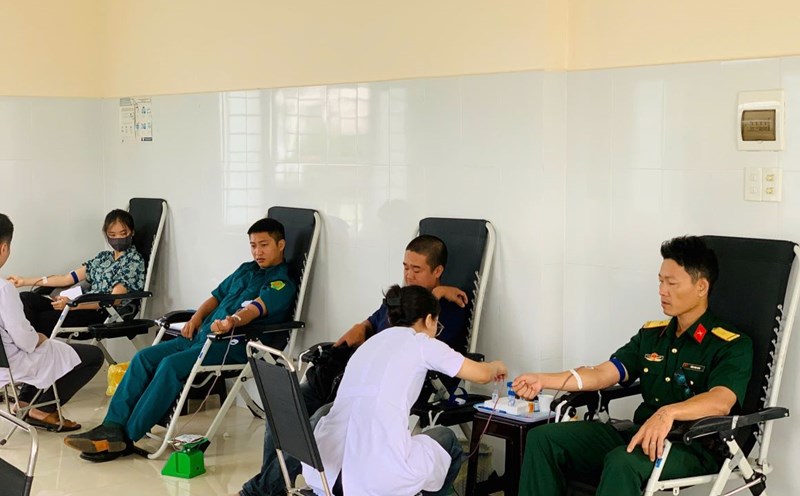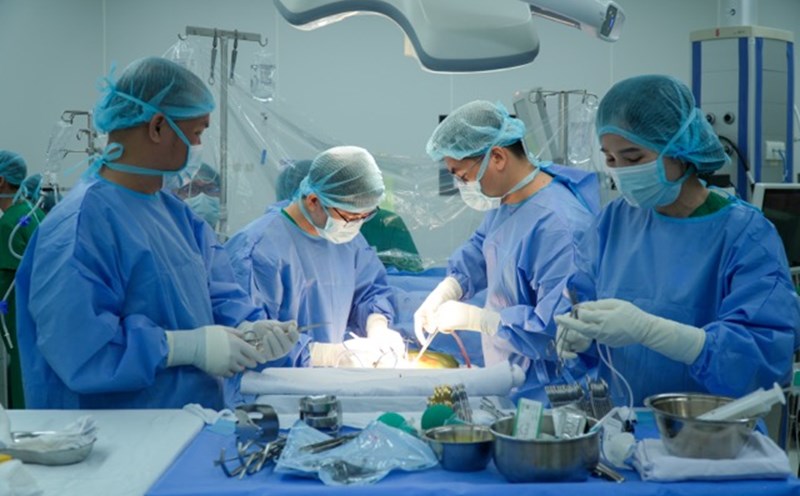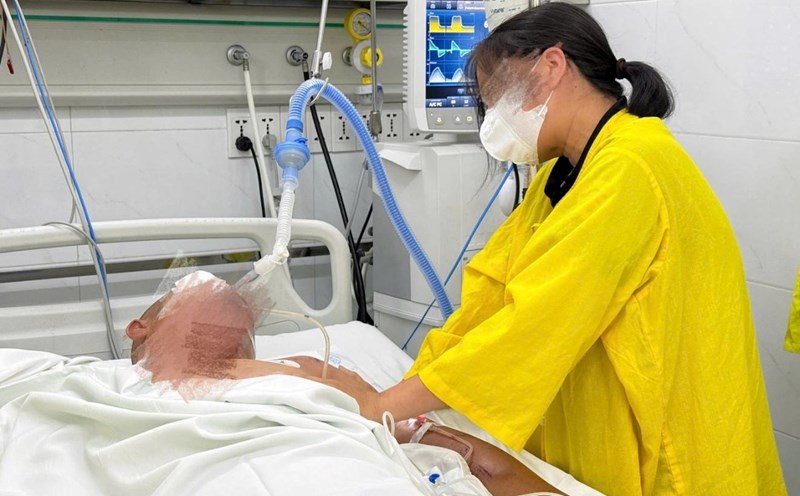Organ donation, the journey to revive from noble gestures
Associate Professor, Dr. Do Kim Que, Deputy Director of Thong Nhat Hospital in Ho Chi Minh City, said that on October 18, 2025, the hospital performed the first heart transplant at the hospital, the heart was taken from a brain-dead donor after a traffic accident, helping to save the life of a patient with end-stage heart failure.
According to Associate Professor Do Kim Que, the donor was a woman who unfortunately suffered a serious traumatic brain injury, collapsed lungs, and cardiac arrest when admitted to the emergency room. Despite being actively resuscitated, the patient's brain condition did not improve. After many professional consultations and assessments according to the correct procedures, the professional council determined that the patient was brain dead on the morning of October 17.
In particular, before passing away, this woman shared her wish to donate her body to medicine. When informed, her only son agreed to fulfill that sacred wish, Associate Professor Que emotionally shared.
After completing the brain-dead confirmation process, Thong Nhat Hospital coordinated with the National Organ Transplant Coordination Center to determine the organs that were eligible for transplant, including the heart, two kidneys and two corneas. The heart was transplanted right at Thong Nhat Hospital for a 61-year-old male patient with severe heart failure; two corneas and 1 kidney were transferred to Hue Central Hospital; one kidney was transferred to Gia Dinh People's Hospital. Currently, the departments coordinated to the hospitals have all successfully transplanted and resumed operations in organ recipients.
At exactly 8:15 a.m. on October 18, the heart of the donor began to beat again in the chest of the recipient, after 127 minutes of taking the organs. After 6 hours of surgery, the patient woke up and could communicate; 26 hours later, his endotracheal section was removed and his health recovered well. When he woke up, he said the first thing: I thank the person who gave me my heart, that was the moment that made the whole crew unable to contain their emotions, Associate Professor Que recounted.
According to Associate Professor Que, this transplant is not only a professional turning point for Thong Nhat Hospital, but also demonstrates the influence of the organ donation and transplant movement in Vietnam. Since the Prime Minister launched the " Donate to save people" program (May 5, 2024), the number of people registering to donate organs has increased rapidly. As of mid-2025, the country has recorded 56 cases of tissue and organ donation, exceeding the total before 2024.
Thanks to the coordination between hospitals, coordination centers, police forces and national aviation, in just a few hours, 5 patients were revived. This is a testament to the increasingly high humanistic and professional value of the Vietnamese medical industry, emphasized Associate Professor, Dr. Do Kim Que.
noble gestures come in time
Dr. Truong Quang Khanh, Head of the Department of Cardiovascular Trident Prosecution, Thong Nhat Hospital, Ho Chi Minh City, said that the heart transplant saved the life of a 61-year-old male patient in a state of "the most life-threatening condition".
According to Dr. Khanh, the patient was diagnosed with literary astigmatism, a rare genetic disease that causes severe arrhythmia. In the past 4-5 years, the patient has had many dangerous arrhythmias, and has been equipped with an automatic vibrator to prevent sudden death. However, because the machine had to work too much, the battery ran out quickly, the patient had to change the machine a second time but still suffered from continuous electric shock.
At the same time, the condition of severe heart failure caused patients to have difficulty breathing even with light exercise, and pulmonary edema recurred, classified as grade IV heart failure, end stage. If not intervened promptly, the patient could die within a few weeks, Dr. Truong Quang Khanh shared.
Faced with that risk, the Department of Cardiovascular Surgery asked for the opinion of the Board of Directors and coordinated with Cho Ray Hospital to put the patient on the waiting list for a heart transplant. When receiving the appropriate donation of organs on October 18, the entire team urgently performed the transplant at Thong Nhat Hospital, due to the patient's weakness and inability to move.
The transplant was successful, the new heart functioned stably, helping the patient perform a miraculous resuscitation. This is a transplant that demonstrates profound humanity and effective coordination between hospitals. For cases of astigmatism like this, heart transplantation is the absolute indication - bringing a normal life to the patient, Dr. Khanh emphasized.












